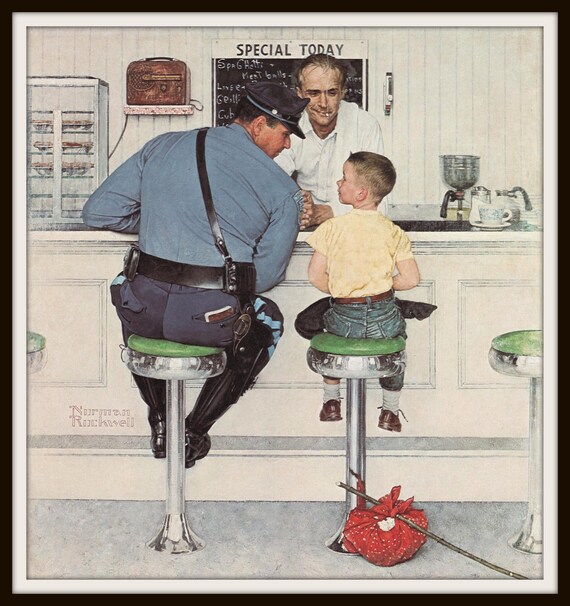I haven't had a traffic ticket in 20 years. I'm a white guy in an affluent neighborhood driving a nice car with no points on my record. When I get pulled over I'm friendly and respectful and the tell me to slow down or stop a little bit longer at the stop sign or get my tail light fixed and they send me on my way. They don't even write it up because I'm not a dirtbag. Or at least I don't look or act like one.
A great way to avoid a ticket if you're stopped at night, is to turn the dome light on in the car. It makes it easy for the cop to see everything in the car. Stops like that are stressful, because they never know who they are walking up on, and if it's a wanted felon they can end up dead.
My experience is, they appreciate the courtesy and are likely to reciprocate with a warning.
I'd like a state bureaucracy where the checkers don't work with the subject officers on a day to day basis. And I'm talking about shootings and deaths in custody. Not every little complaint although you could use that to gather all the data on all the cops in one place. Is there some reason we shouldn't gather the data all in one place?
And every cop can have a bad day. So long as he doesn't do any damage to anyone, being rude or abusive verbally, doesn't have to mean he gets punished for one incident. If there's a pattern of trouble, then someone needs to intervene before he escalates.
Teaching people how to behave towards a cop who's asking you for I.D.?
I was surprised to learn that a lot of police don't know when they can legally ask for I.D. There are a few states that allow police to demand I.D. for any reason. Most don't, and generally, they have to lawfully arrest someone before they can demand identification. Texas, for example, is like that.
But a lot of cops haven't been trained, and think that they have a right to demand "your papers, please", whenever they wish.
They have to recruit from the Human race and we don't pay them so great.
What's appalling is that some departments screen out applicants who are significantly more intelligent than average. And courts have upheld their right to do so. Given the level of responsibility we give them, and the consequences of messing up, you would think they'd want to get the best people possible.
Court OKs Barring High IQs for Cops
A man whose bid to become a police officer was rejected after he scored too high on an intelligence test has lost an appeal in his federal lawsuit against the city.
The 2nd U.S. Circuit Court of Appeals in New York upheld a lower court’s decision that the city did not discriminate against Robert Jordan because the same standards were applied to everyone who took the test.
“This kind of puts an official face on discrimination in America against people of a certain class,” Jordan said today from his Waterford home. “I maintain you have no more control over your basic intelligence than your eye color or your gender or anything else.”
He said he does not plan to take any further legal action.
Jordan, a 49-year-old college graduate, took the exam in 1996 and scored 33 points, the equivalent of an IQ of 125. But New London police interviewed only candidates who scored 20 to 27, on the theory that those who scored too high could get bored with police work and leave soon after undergoing costly training.
http://abcnews.go.com/US/court-oks-barring-high-iqs-cops/story?id=95836
Fortunately, smart people get in often enough to bring the average IQ of cops nationwide to just a little above average. Not good enough, I think considering we expect them to follow the law correctly, de-escalate disputes, and size up life-and-death situations quickly and accurately.
I'm amazed they do as well as they do,given that departments apparently discriminate against bright applicants.


